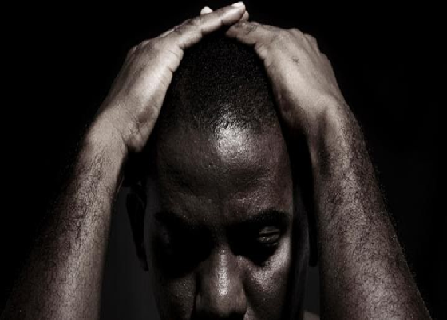
With all the focus on racism in the mainstream media at the moment discussing black mental health has never been more important, especially in light of the statistics that Black people are more likely to be sectioned under the Mental Health Act 1983. It’s time to talk!
Even as a young Black male I was aware of the glaring eyes staring at me on the street, on the bus, in restaurants, cinemas, everywhere. I knew that it was not natural and I knew that it was because of the colour of my skin. It was often overwhelming and led to anxiety and a fear of going out in public. I thought that I was alone until I was brave enough to share my experiences with other black men and women. To know that I was not paranoid or losing my sanity gave me strength. There were others like me who were going through similar experiences.
I was recently moved by the experiences of Louisa Adjoa Parker, a writer of English and Ghanaian heritage in England who said, “Living or working in white spaces presents challenges for people of colour. I’ve lived in rural Britain for most of my life. You get used to the stares, the micro-aggressions, feeling exoticised, and the lack of diversity, but sometimes it feels incredibly lonely.” (Read Building resilience in a racist world: Parker: 17th March, 2020)
In her account Parker compared the years of racist interactions, stares and non-verbal racial communication that she suffered, as an extreme form of abuse that Black people cannot escape from.
She said, “You can’t get away from racism. With other forms of abuse, it’s possible to find a safe space and begin to heal. As people of colour, many of us are triggered and retraumatised throughout our lives.”
The last point struck a chord with me as I am sure it will strike a chord with many Black readers who on a daily basis have to deal with racial stereotypes and hostile interactions of a racial nature. It changes you, it takes away your innocence as a young Black person experiencing these emotions for the first time.
Is it then any surprise that the murder of 46 year-old George Floyd in America provoked emotional violence from Black in America, UK and all over the world?
Images like this make us feel less safe, it keeps us in an emotional constant state of anxiety and alertness, wondering whether we will be next, and this type of thinking is not healthy.
Compound all of these experiences with a system that is predominately, white, and lack understanding of what Black people go through and it leads to the devastating statistics explained by black therapist Kairo Maynard in her article, ‘As a black therapist, I want to see action come out of mental health awareness discussions‘. (Mental Health Today: 10th May,2019)
Maynard said:
- “The highest rates of PTSD were observed in Black British participants, particularly women who are more likely to experience a higher number of sexual assaults; but have a lower number of reporting or seeking help for their trauma.
- Black African men are more likely to commit suicide compared to their White counterparts (Bhui KS et al., 2012).
- Black people were among some of the highest to be sectioned under the Mental Health Act 1983 (MHA), however they were in the lowest group to be offered social support.
- African-Caribbean people are three to five times more likely than any other group to be diagnosed and admitted to hospital for schizophrenia.”
We are facing a system where there are a lack of Black therapists who are equipped to deal with the mental health issues of Black people.
I wrote an article back in April 2010 where I cited research by Psychiatrist, Professor Robin Murray, who indicated that racism and schizophrenia in the Black community was linked. (Read Denying racism leads to greater stress levels says study , (Watson: Minority Perspective, 4th April, 2010)
Murray said, “It seems to be something in the social environment, something about being black in Britain. The experience of black people in the UK almost drives them mad”. (BBC News: Schizophrenia ‘linked to racism’: Friday, 7th December, 2001) http://news.bbc.co.uk/1/hi/health/1695760.stm
It’s time for us to speak up and talk about our experiences as a community. It is interesting that mental health awareness has been the focus of the mainstream media for some time, especially with the lock down during the Covid-19 pandemic, yet black mental health issues is still not at the forefront of public debate.
Like Parker said, racism is a form of abuse that Black people cannot escape and I would argue that the only way to defeat the abuse is to face our abusers.
If you suffering from anxiety, stress or other mental health issues related to racism I would advise you to contact the Black, African and Asian Therapy Network.
On their website they describe themselves as the “…largest independent organisation to specialise in working psychologically, informed by an understanding of intersectionality, with people who identify as Black, African, South Asian and Caribbean. Our primary focus and area of expertise is to support people from these heritages.”(Read https://www.baatn.org.uk/about/)
Don’t suffer in silence, speak to a family member, a friend or a professional.
For further Research:
(Parker: 17th Mach, 2020) Building resilience in a racist world
(Maynard: Mental Health Today: 10th May,2019) ‘As a black therapist, I want to see action come out of mental health awareness discussions‘
(Watson: Minority Perspective, 4th April, 2010) Denying racism leads to greater stress levels says study
The Black, African and Asian Therapy Network (BAATN) https://www.baatn.org.uk/
(BBC News: Schizophrenia ‘linked to racism’: Friday, 7th December, 2001) http://news.bbc.co.uk/1/hi/health/1695760.stm
